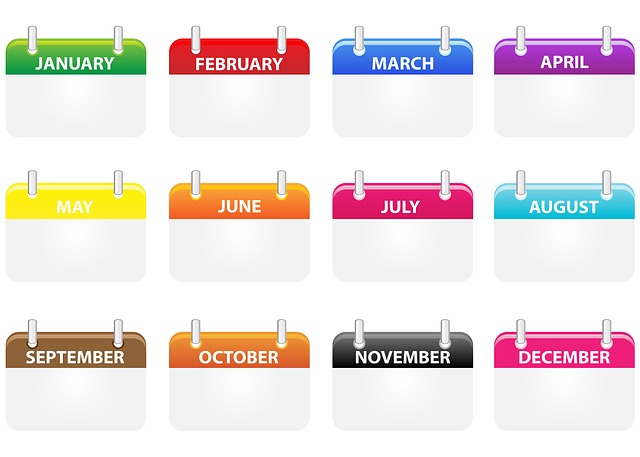As the school year starts to wind down, you might be asking yourself: when are AP exams? In this article, I'll break down everything you need to know about the AP exam schedule, including when they usually take place, the specific schedule for this year, what to do if you find yourself in an AP schedule mishap, and how you can leverage the schedule to best plan your studying.
As some people are preparing for summer, others are preparing for the SAT. If you’re a junior thinking of taking the SAT before senior year, the June SAT can give you a chance to raise your scores and get a head start on the college application process.
In this article, we'll tell you everything you need to know about the June SAT, including when it is, when its registration deadlines are, and when scores are expected to come out. We’ll also give you a detailed list of the pros and cons of the June SAT to help you decide whether this test date is ultimately right for you.
Which IB Courses Can I Take Online? Can I Get an Online IB Diploma?
Wow, the world has changed a lot for us old folks who graduated high school in 2010. While you can't get your International Baccalaureate (IB) Diploma online, you can take several IB courses online if you are enrolled in an IB World School.
The Best 13 Math Competitions for High School Students
Math competitions are a fantastic extracurricular activity for high school students. Math competitions help students improve their math skills, earn scholarships, and stand out as college applicants.
If you are interested in getting into high school math competitions but aren’t sure where to begin, this article is for you. We’ll give you all the details on 13 math competitions for high school students, including the eligibility requirements and cash prize opportunities for each competition.
We’ll also briefly explain how to decide which math competition is right for you and how math competitions can help you shine as a college applicant. So let’s get started!
What Is the Advanced International Certificate of Education (AICE)?
For students looking for a more challenging high school experience or for a chance to earn college credit, many high schools offer advanced college-level programs. The newest one of these is the Cambridge AICE, an international diploma program created via the University of Cambridge in England.
Curious about whether this program is right for you? In this article, I'll explain the AICE approach, the coursework necessary to get the diploma, and how it compares to AP and IB classes.
If you're looking at applying to elite liberal arts colleges, you've probably come across the Seven Sisters schools. But what schools are Seven Sisters colleges, and what makes them so special?
In this article, we explain what the Seven Sisters schools are, which of them still exist, and which of them are still all-women's colleges. I'll also use my expertise as an alum of a Seven Sisters school to break down what the benefits are of applying to a Seven Sisters school and five tips for getting admitted.
Do you need to raise your ACT score, ASAP? Do you want to make a huge score improvement, from good to amazing—from 25 to 32?
It’s not easy, but you can take huge strides toward the ACT score of your dream in just 10 days. In this article, we show you how to pinpoint your weaknesses, create an effective study plan, and significantly raise your ACT score.
What Is the Research Science Institute? How Do You Get In?
Interested in learning more about Research Science Institute? Maybe you've heard that the RSI Summer Program is the most competitive science research program for high school students in the US, and attending it is one of the best ways to get the attention of top-tier colleges. But what is the Research Science Institute, and what do participants do there? And how can you be one of the lucky few who get accepted? This guide will answer all those questions and give you tips on how to create a standout RSI application.
University of California Drops SAT/ACT Scores: What It Means for You
Yep, you read that correctly: in May 2020, the University of California Board of Regents voted unanimously to stop requiring the ACT and SAT as part of admissions applications. In other words, if you're applying to a UC school, you won't submit your ACT or SAT scores.
Before you get super excited, there are some caveats you should know about. That's why we're breaking down the changes — and answering your FAQs! — below.
Thinking about entering the fashion industry? You're in for a fun, challenging career path. If you want to be well-prepared to enter any area of fashion—either it's the design side or the business side—an education at a well-reputed school will definitely be helpful.
Before getting into the list of best fashion schools, I'll talk a bit about why you might want to attend a fashion school and how I compiled these rankings.
Are you a gamer who dreams of one day getting paid to create video games? Have you ever played a video game and thought that you could do a better job coming up with the characters, dialogue, or rules? Maybe you should consider studying game design and entering a growing and lucrative field.
In this article, I'll explain game design, provide a list of the best video game design schools, and let you know how to use the list to help you find the right college for you.
Love science and want to show off your skills? High school science competitions are a great way to do that! But which competitions will impress colleges the most? We've gathered information on 11 of the best science competitions for high school students. Look over the descriptions that seem most interesting to you, then keep reading to learn everything you need to do to make them stand out on your college applications.
May is a busy month for students with end of year exams, sports, and activities, but there is one more thing you might want to consider: taking the May SAT in your junior year. Taking the May SAT can help you boost your score and be competitive for early action or early decision at your top schools.
In this article, we'll go over everything you need to know about the May 2026 SAT, including registration deadlines, how to register, and when your scores can be expected to come out. We'll also go over some pros and cons to help you decide if this is the right test date for you.
Can You Take the SAT After High School? Expert Guide
While people associate the SAT with high school students, there are several reasons someone may need or want to take the SAT after high school. But can you take the SAT after high school? Absolutely! I took the SAT this past year as an adult and will be taking it again this May.
In this guide, I’ll cover the reasons you may want to take the SAT as an adult, how to register, how testing is different as an adult, and more advice.
Many competitive college programs require high school students to submit SAT Subject Test scores to be eligible for admission. This usually means spending a little more money on test registration, but fee waivers are available if you're eligible. In this article, I'll go through how much each SAT Subject Test costs and how fee waivers work for these tests.
























